Radu Vasile
[:ro]
web: ,
Prezentare Demers Artistic
[…] Ochiul ca formă a inteligenţei optice defineşte „inţelepciunea” pictorului. Ce s-ar face pictorul fără aceasta? Ar rămâne un explorator anost şi ineficace al realităţii înconjurătoare. N-ar şti să extragă şi să formuleze discursul său artistic cuplat „inteligenţei” naturii. N-ar fi un „filozof” şi, cu atât mai puţin, „un poet”, „un savant”, un „creator”… şi atâtea alte moduri „umane” de-a exploata inteligent „conceptul” naturii. Experienţa sa senzorială devine calitativ o formă ontologică a dotării sale intelectuale. Dar, pentru aceasta, artistul trebuie să rămână… „un copil”, „o inteligenţă” în forma ei pură! Trebuie să ne întoarcem mereu la această vârstă a inteligenţei perceptuale, a cunoaşterii sensibile. Fără ele ajungem repede la starea omului matur, viclean, oportunist, interesat, iar inteligenţa lumii lui decade la forma ei primitivă de adaptabilitate şi auto-protecţie interesată a vieţii. Există un risc major în aceasta: revoluţia mimetică, starea travestiului facil prin care gândacul ia forma frunzei pe care se aşează, şopârla pare o prelungire a ramurii de care se sprijină! Lumina nu este decât altă formă a întunericului. Copile care eşti un izvor de lumină, auzi în prejma ta zgomotul dogit al hârdaielor care se agită, învălmăşindu-se să prindă o frântură din strălucirea ta magică? Lumina, ca şi apa sau mercurul are „geniul” exasperant de-a se împrăştia, de-a se răspândi liber pe cuprinderea plană a vieţii, căzând atât de uşor în capcana oricăror recipiente; şi, tot atât de uşor, evadând din ele! Fereşte-te de cei care deschid teatrele de simulacre, alergând besmetici să rupă de la tine miracolul-spectacol al talentului. […]
Scrisoare către pictorul Corneliu Brudaşcu, la împlinirea vârstei de 75 de ani. (ianuarie, 2013)
website link: ,
[:en]
web: ,
Prezentare Demers Artistic
[…] As form of optical intelligence, the eye renders the painter’s wisdom. What would become the painter without it? He would tediously and inefficiently search his surrounding realty. He wouldn’t know how to extract and express his artistic discourse coupled to the nature’s “intelligence”. He wouldn’t become a “philosopher” and even less a “poet”, a “scholar”, a “creator”… and other “human” ways to exploit wisely the nature’s “concept”. The sensorial experience becomes an ontological form of his intelligence. And in order to achieve this goal, the artist must remain… a “kid”, an “intelligence” of the most pure quality! He must always return to the age of perceptual wisdom, of genuine knowledge. Without those qualities, the artist reaches the status of a wily and opportunistic adult, and the intelligence of his world decades to its primitive form of adaptability and self-protection. There is a major risk in this: the mimetic revolution, a form of simple travesty condition – as of the bug taking the shape of the leaf, or of the lizard seeming the extension of the branch! The light is another form of the darkness. You, who are the source of light, can’t you hear around the rough noise of jugs trying to catch a slice of your magic glow? Like water and mercury, the light has the brightness to spread and freely radiate upon the wide field of life; it easily falls in the trap of any containers and as easily escapes from them! Watch out, kid, for those who open faked theatres, seeking to steal the miracle of your talent. […]
Letter to the painter Cornelius Brudascu, at the age of 75 years. (January, 2013)
website link: ,
[:]

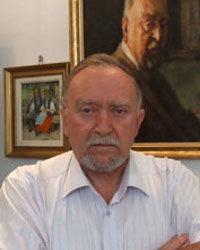



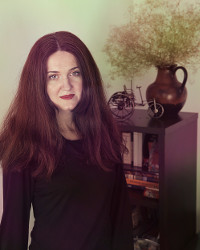








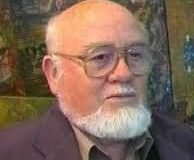
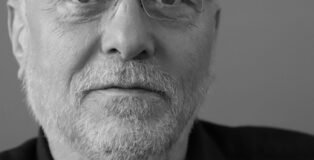
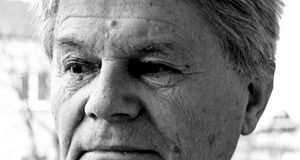
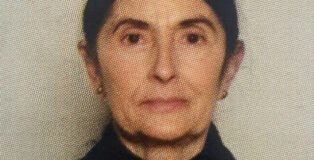
Comentarii recente